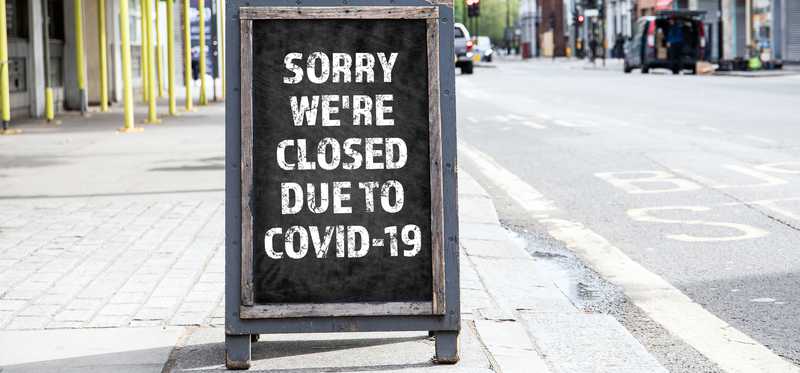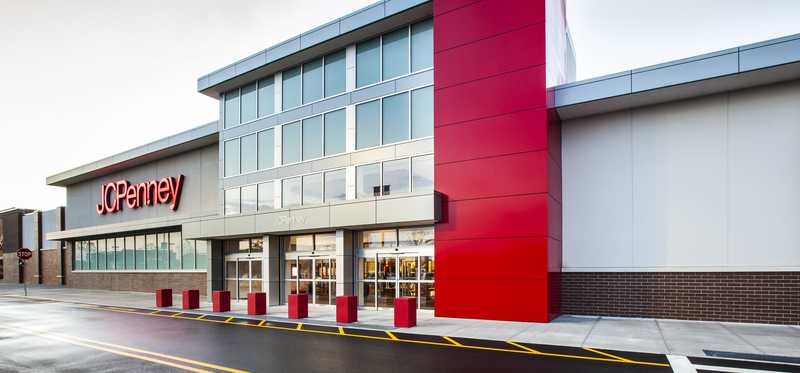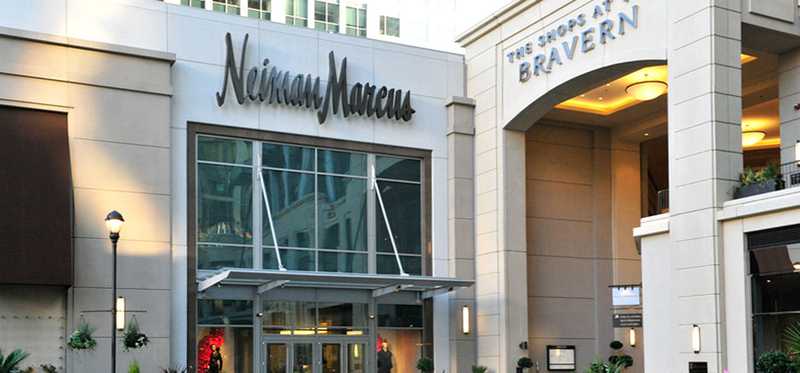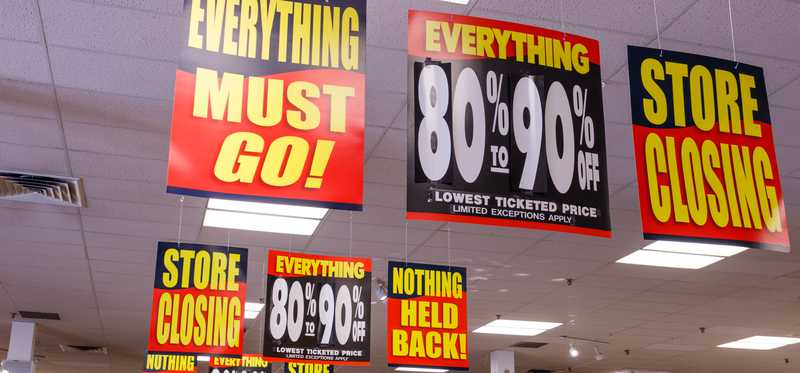10 Retailers That Have Gone Bankrupt Amid Coronavirus

10 Retailers That Have Gone Bankrupt Amid Coronavirus
An uneven recovery for retail stores
It’s hard to overstate it. The coronavirus pandemic has been a disaster for the retail industry. Weeks of lockdowns followed by sluggish store traffic have forced a number of weaker retailers to bankruptcy, with most seeking Chapter 11 protection, planning to restructure debt and reopen as slimmed-down businesses.
While overall retail sales have actually fully recovered, completing the “V-shaped recovery” that some prognosticators had called for, that recovery has been uneven, favoring supermarkets and home-improvement chains, while sales at apparel stores and other specialty businesses are still well below normal levels.
Keep reading to see 10 retailers in the apparel sector and elsewhere that have been forced to seek bankruptcy protection by the pandemic.
5 Winning Stocks Under $49
We hear it over and over from investors, “I wish I had bought Amazon or Netflix when they were first recommended by the Motley Fool. I’d be sitting on a gold mine!” And it’s true. And while Amazon and Netflix have had a good run, we think these 5 other stocks are screaming buys. And you can buy them now for less than $49 a share! Simply click here to learn how to get your copy of “5 Growth Stocks Under $49” for FREE for a limited time only.
Previous
Next

1. J.C. Penney
For nearly a decade, J.C. Penney (OTC: JCPNQ) has been the poster child for dysfunctional retailers. The company has shuffled through four CEOs after a disastrous tenure under Ron Johnson in 2012. During that period, comparable sales plunged 25% after Johnson's plan to redesign stores and get rid of discounts turned out to be anathema to Penney’s most loyal customers.
Since then, the company has struggled to turn a profit while getting crushed by a debt load of around $4 billion.
It sought bankruptcy court protection in May and is now being bought out of insolvency by mall operators Simon Property Group and Brookfield Property Partners, a tenuous agreement as those companies are signaling they’d rather own a struggling tenant than lose it altogether. As part of the restructuring plan, Penney was expected to close about 250 stores.
ALSO READ: 3 Top Retail Apocalypse-Proof Stocks to Watch in September
Previous
Next

2. J.Crew
Preppy clothier J.Crew was once on top of the apparel world as it was a workwear staple in the early part of the century. However, debt from a private-equity buyout has weighed on the company for years, and the pandemic soured the chances of an IPO from Madewell, the company's popular women’s brand subsidiary.
J.Crew sought bankruptcy protection in the beginning of May and recently emerged from Chapter 11 in a deal that gives lenders control of the business, with investment firm Anchorage Capital Group as the majority owner. The reorganization plan converted $1.6 billion of debt into equity and gave the retailer $400 million in term loans. Considering the strength in the Madewell brand, the company could return to health, as the apparel industry should normalize when the pandemic ends.
Previous
Next

3. Ascena Retail Group
One of the biggest retailers in the country by store count, Ascena Retail Group at one point had about 5,000 stores under banners including Ann Taylor, Lane Bryant and Maurices. However, it also consistently struggled to turn a profit as the company was overstored, and it was forced to sell off brands like Dressbarn and close stores.
The coronavirus pandemic pushed an already-weak company over the edge, and Ascena ended up seeking bankruptcy protection in July. As part of the plan, it will close about 1,100 stores, including almost all locations of its tween brand, Justice, and sell off its plus-size Catherine’s chain. After making those arrangements, the company now appears to be ready to come out of bankruptcy.
Previous
Next

4. GNC
GNC (OTC: GNCIQ), the nutritional supplement retailer, has also struggled for years, as its business has been undermined by online competition and an excess of stores. In 2019, the company lost $35 million on a generally accepted accounting principles (GAAP) basis, and revenue fell 12% to $2.07 billion.
The company sought bankruptcy protection in June, with plans to close 1,200 of its approximately 7,500 stores worldwide. GNC was able to get $130 million in financing from its largest vendor, and it should be able to emerge from bankruptcy as a number of its stakeholders, including vendors and landlords, do not want to see it liquidate.
Previous
Next

5. Century 21
While most retailers on this list plan to use bankruptcy to restructure and relieve themselves of debt, Century 21, the New York-based department store that struggled to survive after 9/11, said earlier this month that it would close all 15 of its stores.
The company pointed blame at insurance companies that it said refused to pay out $175 million in business interruption claims, leaving the company no choice but to liquidate.
Co-CEO Raymond Gindi said, “We now have no viable alternative but to begin the closure of our beloved family business because our insurers, to whom we have paid significant premiums every year for protection against unforeseen circumstances like we are experiencing today, have turned their backs on us at this most critical time.”
5 Winning Stocks Under $49
We hear it over and over from investors, “I wish I had bought Amazon or Netflix when they were first recommended by the Motley Fool. I’d be sitting on a gold mine!” And it’s true. And while Amazon and Netflix have had a good run, we think these 5 other stocks are screaming buys. And you can buy them now for less than $49 a share! Simply click here to learn how to get your copy of “5 Growth Stocks Under $49” for FREE for a limited time only.
Previous
Next

6. Neiman Marcus
Like J.Crew and some others on this list, high-end department store Neiman Marcus had been struggling with billions of debt for years. The interest payments made profitability nearly impossible and forced the company to seek Chapter 11 bankruptcy protection in May.
The company said earlier this month that it expects to emerge from bankruptcy by the end of September, as lenders have agreed to relieve about $4 billion in debt and fund $750 million in exit financing.
As part of its bankruptcy exit, Neiman has just announced a round of layoffs that are reported to be substantial but will also support its plan to strengthen its e-commerce business.
Previous
Next

7. Lord & Taylor
Yet another department store chain, Lord & Taylor had been in retreat for years as the former Hudson Bay subsidiary sold its flagship Manhattan store to WeWork in 2017 for nearly $1 billion. Now, after being sold to online styling service Le Tote last year, Lord & Taylor was hit hard by the coronavirus pandemic, and the company said in August that it would close all 38 remaining stores, effectively liquidating the business.
The department store had sought Chapter 11 bankruptcy protection at the beginning of August in hopes of finding a buyer, but none emerged. Its only remaining choice was to close its stores.
ALSO READ: Get Paid While You Wait: 3 Top Dividend Stocks in Retail
Previous
Next

8. Tailored Brands
Mall-based staple Tailored Brands (OTC: TLRDQ) joined the parade of apparel retailers seeking bankruptcy protection in the beginning of August. The parent of Men’s Wearhouse and Jos. A. Bank got hit hard by the work-from-home transition at the start of the pandemic as office workers no longer needed suits, the company’s core business.
Tailored Brands was already floundering before the pandemic, suffering from an overstored base, declining mall traffic, and a casualization of menswear.
As part of its bankruptcy plan, the company obtained $500 million in debtor-in-possession financing, allowing it to operate stores while it restructures. The company had previously said it had a list of 500 stores it planned to close.
Previous
Next

9. Pier 1 Imports
Home goods retailer Pier 1 Imports actually sought bankruptcy protection before the pandemic began, but the crisis seems to have killed any chance the company had of making a comeback. Pier 1 had originally planned to restructure and close about half of its remaining 1,000 stores, but in June it updated those plans to say it would liquidate the business and close all of its locations.
The company made plans to sell its website and intellectual property in July, after having been on the decline for years, squeezed by larger retailers and online competitors like Wayfair. It was acquired for $31 million by Retail Ecommerce Ventures, which planned to relaunch the e-commerce site.
Previous
Next

10. Stage Stores
Stage Stores, a long-struggling department store chain in the South, briefly experienced a boom when the company’s pivot to an off-price brand, using the Gordmans chain it had acquired, seemed to be paying off. However, that recovery quickly fizzled after a disappointing holiday season, and shares fell back into penny stock range. Then the pandemic delivered the coup de grace.
Stage Stores sought bankruptcy protection in May in hopes of finding a buyer, but none appeared, and the company said it would liquidate its stores in August .
Like other department stores, the pressure of changed shopping patterns followed by the pandemic was too much for it to handle.
5 Winning Stocks Under $49
We hear it over and over from investors, “I wish I had bought Amazon or Netflix when they were first recommended by the Motley Fool. I’d be sitting on a gold mine!” And it’s true. And while Amazon and Netflix have had a good run, we think these 5 other stocks are screaming buys. And you can buy them now for less than $49 a share! Simply click here to learn how to get your copy of “5 Growth Stocks Under $49” for FREE for a limited time only.
Previous
Next

It's not over
Though the worst part of the pandemic for discretionary retailers -- the devastating lockdowns -- may have passed, there are still more challenges ahead. Until there is a vaccine or some other end to the pandemic, shoppers are going to be reluctant to visit stores, and retailers are likely to suffer. 2020 has already been one of the worst years on record for the retail industry, but there could still be more names added to the bankruptcy list before the year is through.
Jeremy Bowman has no position in any of the stocks mentioned. The Motley Fool owns shares of and recommends Wayfair. The Motley Fool has a disclosure policy.
Previous
Next
Invest Smarter with The Motley Fool
Join Over Half a Million Premium Members Receiving…
- New Stock Picks Each Month
- Detailed Analysis of Companies
- Model Portfolios
- Live Streaming During Market Hours
- And Much More
READ MORE
HOW THE MOTLEY FOOL CAN HELP YOU
-
Premium Investing Guidance
Market beating stocks from our award-winning service
-
The Daily Upside Newsletter
Investment news and high-quality insights delivered straight to your inbox
-
Get Started Investing
You can do it. Successful investing in just a few steps
-
Win at Retirement
Secrets and strategies for the post-work life you want.
-
Find a Broker
Find the right brokerage account for you.
-
Listen to our Podcasts
Hear our experts take on stocks, the market, and how to invest.
Premium Investing Services
Invest better with The Motley Fool. Get stock recommendations, portfolio guidance, and more from The Motley Fool's premium services.